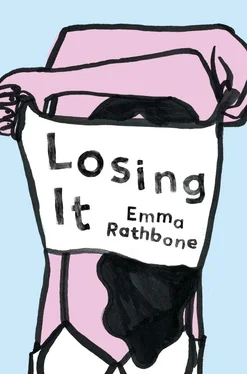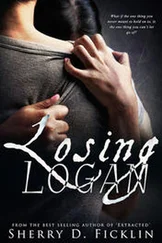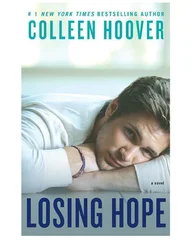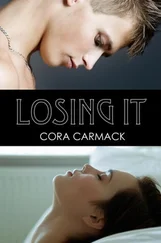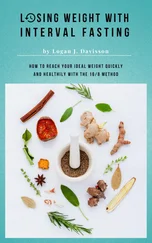I thought, There is someone out there for you, Gerald. Someone kind and wonderful who can get in step with your strange tempo of swagger and fragility, and that person is not me.
He traced the top of my underwear. To keep going, I had to keep so much at the front of my mind, had to keep so many plates suspended and spinning in the air. He eased my shirt off, and now my bare back was on the cold comforter. He reached around me to undo my bra. He was having trouble, and so he yanked at it, harder and harder. He had a rigid half smile on his face and his eyes were closed but now they opened and as I twisted my arm back to help him our heads bumped and he looked at me with utter helplessness. I tried to smile and finally got my bra undone. I wrestled myself down on that bed, to stay, to not spring up. He was at my side, holding one of my breasts; he pulled away and, having regained some composure, he traced a small scar on my shoulder and then he giggled. “Uh-oh,” he said, in a singsong way, and looked at me like I was a toddler. The air-conditioning clicked on, a low hum swept across the room. I focused on the bare wall. “What did you do?” he said, and I got a glimpse into the way he wanted this to go, the way he’d always thought it was going to go: fatherly sparring, I was to be a fragile, adorable thing. My eyes darted around frantically.
I sat bolt upright.
“I have to go,” I said. “I’m sorry.”
“Okay, okay,” he said quickly, guiltily, backing away like I was a live grenade. He was looking at me in that way again. Expecting something more, helpless.
“I have, um”—I swiveled a foot into a shoe—“this thing I have to go to, with my aunt? I just completely forgot about it.”
“Okay,” he said, clapping his hands together, nodding.
“It’s… She has a class? At the McGregor Art Center? And I have to bring her a cactus. So they can use it in a still life?”
“Okay,” said Gerald. He put up his hands. “Okay.”
A few minutes later, as he followed me down the stairs, as if by some instinct to adhere this experience to what it was originally supposed to be, to save us from some embarrassment, maybe just to prove that there was one all along, he asked if I wanted to see the collection.
“Oh, yeah, sure,” I said.
He took me into the kitchen and opened a drawer. And there they were. All strewn around. A few were on chains, a few weren’t. One was hot pink. One had a zebra pattern. They were matted and straggly, about ten furry rabbit’s feet. I don’t think I’d ever felt so lonely, in my whole life, as I did right then.
We drove back to the coffee shop in silence. He put on the radio and left it on a station that was playing festive steel drum music. When we were there, I got out and we said businesslike goodbyes. Neither of us pretended we would see each other at the watercolor class again.
On my way home in my own car, as I drove farther out of town and everything got undulating and green, I decided — I was just going to ask her. That’s all there was to it. I was going to ask Aunt Viv why she was still a virgin and then it would no longer be a mystery to me, along with the origins of the universe, buried under the dunes of her face, swallowed to the very core of her.
I was going to find her and ask her and I didn’t care if it was rude or none of my business or if it would tear something between us. I was going to exhume the inexhumable. I was going to shout it at her. Because I needed to know how the impossible became possible because the horrible truth is that I thought I did know — a series of stall-outs, of things not being quite right, an endless line of Gerald Campbells.
I wanted to find her and ask her because the whole time I’d thought there had to be a reason, and the thing I was realizing with dreadful clarity, the worst of all possible outcomes, was that there simply didn’t have to be a reason.
I pulled into the driveway and got out and slammed the car door shut. I was prepared to look all over for her and I stomped up the porch stairs because I didn’t want to lose my resolve. I opened the door and threw my bag to the side. It was quiet and cool in the house and there she was. To my left. In the lounge. She was sitting on the couch, her hand paused midair and holding a picture and she’d been crying. A lot. Her face was shucked and raw and red. Her mouth looked like something sawed off.
“Vivienne,” I said. “What is it?”
“It’s Alice,” she said. “She died.”
—
After she told me about Alice, I hovered there, not knowing what to say. She seemed, for a moment, her face in complete disarray, to look to me as if I were holding the key to everything and just wasn’t giving it to her.
“Is there anything I can do?” I said. But then she turned her head to the side, and by subtle grades composed herself. It was as if I’d caught her in an angle of grief that surprised us both.
She walked slowly upstairs to her bedroom and didn’t come out for the rest of the day. For the next seventy-two hours it seemed as if the whole house was suffused with fragility and grief. I tried to be very quiet, and to leave her alone.
Over the next few days, with a kind of grim resolve, she threw herself into a number of household tasks: re-grouting the tiles in her bathroom, scrubbing the inside of all the kitchen drawers, stripping and painting the porch swing an adobe orange that didn’t go with anything else. I’d come downstairs and find her on her knees in the kitchen, on some plastic sheeting, wiping her forehead with her shirtsleeve, and everything about her manner said she didn’t want to be interrupted, go away.

“Your father and I are getting separated.”
“What?” I was on the phone with my mom, in the dim living room, staring out the window at Viv, who was in her sun hat, trying to dig something out of the earth with a spade.
I put a glass of water to my cheek. “What happened? What about all that stuff you said before?”
“That was bullshit. I don’t know what got into me. We’re not those kind of people.”
I shifted my weight, the floor creaked beneath. “I don’t get it.”
“Look, another couple approached us, they asked if we wanted to participate in some kind of orgy. Your father wanted to. I did not. Let’s just say it exposed some fault lines.”
“Dad said that?”
“I wanted to tell you first. I know it’s not what you want to hear, but the truth is we’ve been having trouble for a while.” She sounded out of breath. I pictured her throwing stuff into a duffel bag in a frenzy. “Your father is an idiot. No, I take that back. I’m sorry I said that. But, hold on.” She muffled the phone. “It’s on the hammock,” I heard her yell. “That hammock! Hold on, Julia. The hammock ,” she screamed.
“I’m back. But, Julia, what I wanted to say is that we’ll both be there for you, okay? This isn’t going to affect anything between us and you.”
“But I mean. I just— Wait.”
I sat down. I bunched up my skirt in my hand, then let it go.
“What’s going to happen?” I said. “Is one of you going to move?”
“Your father is going to spend some time with the Cargills.”
“He’s going to Miami?”
“It’s what we could arrange at the last minute.”
I pictured my dad standing at an outdoor bar, wearing a lime-green blazer and glancing around hopefully. I felt terribly, terribly sad.
“Are you there?”
“It’s just— I’m really surprised. I’m shocked,” I said.
I got up and looked out the window again. Viv was digging up a flower bed. I watched her yank a plant out of the ground, inspect its leaves, and toss it to the side. I turned and ran my finger along the lacquered top of a cabinet, making a line through the dust.
Читать дальше
Конец ознакомительного отрывка
Купить книгу
